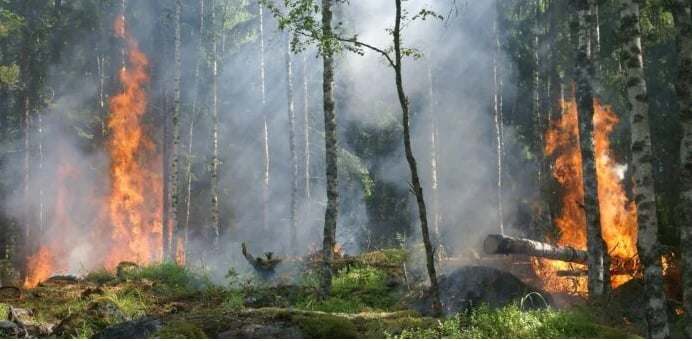November 27, 2025 | 18:49 GMT +7
November 27, 2025 | 18:49 GMT +7
Hotline: 0913.378.918
November 27, 2025 | 18:49 GMT +7
Hotline: 0913.378.918

The study found that natural risks like wildfires are underestimated by more than a factor of 10.
The study “Error Log: Exposing the methodological failures of REDD+ forestry projects” concludes that REDD+ is not suitable for carbon offsetting and raises concerns about its impact on local communities and the environment.
REDD+ stands for “Reducing Emissions from Deforestation and Forest Degradation.” It is an international initiative that incentivizes forest conservation to reduce carbon emissions and combat climate change.
At the end of 2022, there are over 620 individual REDD+ projects and programs implemented globally, backed by international donor organizations, such as the UN-REDD and the World Bank. For the same period, there were over 400 million REDD+ credit issuances, representing a quarter of total credits issued in the market.
Baselines set the estimated emissions without the project. The study found that inflated baselines led to over-crediting, with results differing by more than 14x for a given project.
Recommendations:
Leakage increases emissions outside a project’s boundary. The study found that the average leakage rate deducted by REDD+ projects is just 4.4%, far below the prescribed 10%-70%.
Recommendations:
Carbon accounting is central to credit issuance. The study found a 23%-30% overestimation in forest carbon content, with belowground carbon overestimated by 61%.
Recommendations:
Permanence ensures long-term carbon storage. The study found that natural risks like wildfires are underestimated by more than a factor of 10.
Recommendations:
Safeguards protect against harm. The study found that VCS safeguards are less stringent than international standards like the IFC and GCF.
Recommendations:
The UC Berkeley study serves as a wake-up call. By implementing its recommendations, we can improve REDD+ projects’ quality, effectiveness, and ethical standing.
The study provides a roadmap for making these projects more aligned with their intended goals, ensuring a meaningful contribution to the fight against climate change.
(carboncredits)

(VAN) A new study reveals how the simultaneous effects of ocean acidification, salinity and loss of oxygen are making the world more fragile.

(VAN) Hopes are growing that the creation of the first 3D turkey gut model could be a turning point in the battle against the virulent blackhead disease.

(VAN) Tyson, America’s biggest meat supplier, plans to shutter one of its largest beef processing plants as the industry continues to struggle with low cattle supplies and political pressure from Washington.

(VAN) New FAO study shows how digital solutions are empowering farmers and fishers to prevent losses and build resilient agrifood systems.

(VAN) Brazil's COP30 presidency pushed through a compromise climate deal on Saturday that would boost finance for poor nations coping with global warming but that omitted any mention of the fossil fuels driving it.

(VAN) Poultry farmers in the UK have been warned that they could face one of the worst winters yet for bird flu.

(VAN) Prices of main-crop paddy have risen sharply, with jasmine rice hitting 16,100 baht per tonne — the highest level in years.